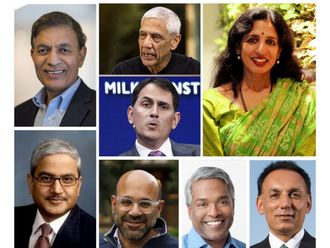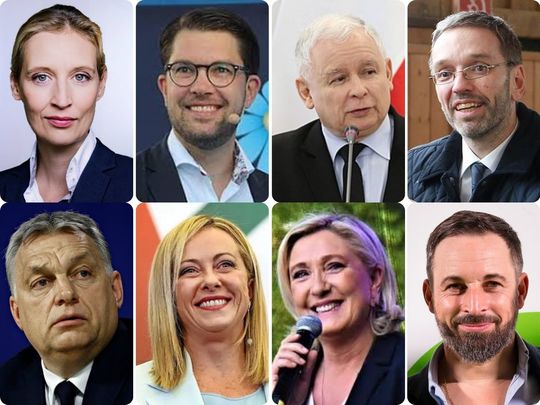
Highlights
- The rise of right-wing parties to the mainstream carries the potential to reshape the political landscape of the European Union.
- It's the perfect storm – a combustible mix of anxieties and economic strain, threatening to boil over.
Europe is a continent shaped by migration. In recent years, it's been grappling with integrating a new wave with up to 5.1 million migrants entering the European Union from non-EU countries.
This has created a pressure cooker of tensions as more countries are worried about cultural shifts, alongside the economics of managing migrants. Now, the flames have been stoked by a skyrocketing cost of living. Fuel prices, already on a tear, have gone sky-high thanks to global tensions.
Trend-setter
Their ascent to power reflects an underlying trend: a pushback against globalisation, and national identity. As they gain more influence, these parties are reshaping Europe's political landscape, often leading to increased polarisation.
Most right-wing parties anchor their campaigns on the immigration-inflation issues, national sovereignty, and Euroscepticism.
And, while inflation was a major concern in the continent, particularly in 2022, it has actually subsided in 2023. Nevertheless, right-wing and far-right parties have ably weaponised the memory of the 2022 – allowing them to make significant strides.
The result: in nearly half of the EU countries, a far right or nationalist party is among the three most popular. From Finland, Sweden, Germany, France, Austria, Hungary, Romania, Bulgaria, Italy and Spain, the far-right parties occupy the top three. In Poland and Slovakia, which is holding election this fall, right-wing parties are racing leading in opinion polls.
It's the perfect storm – a combustible mix of anxieties and economic strain, threatening to boil over, with the potential to reshape the political landscape of the European Union.
1.5 million: The number of people previously residing in one EU Member who to another Member State in 2022, a 7 per cent increase vs. 2021
[Source: European Commission]
These right-wing movements/parties tend to united in their support for these core themes -- nationalism, social conservatism, and a crackdown on immigration.
Here’s a list of some prominent right-wing parties that have been elected to national parliaments or hold significant influence in their respective countries:
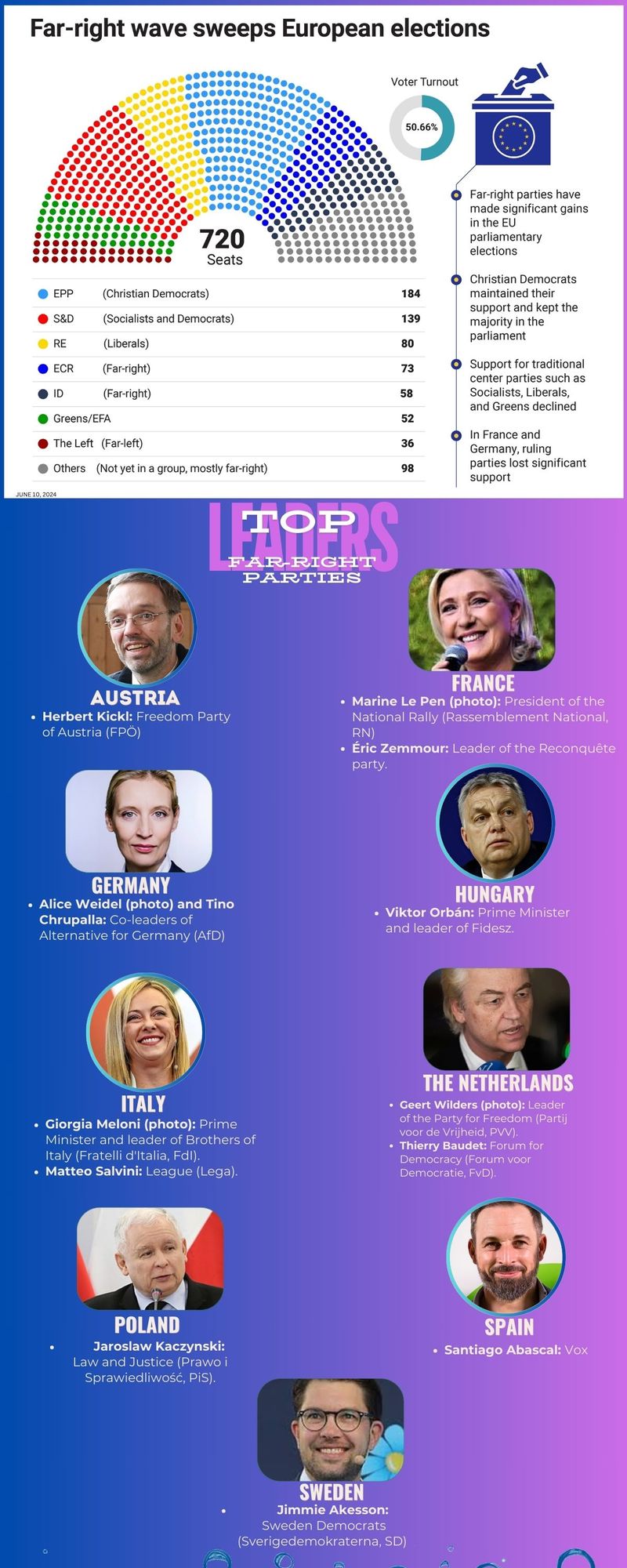
France
National Rally (Rassemblement National):
Led by Marine Le Pen, the National Rally has been a major force in French politics, consistently performing well in both national and European elections.

Recently, it has dealt the centrist coalition led by President Emmanuel Macron with a stunning rebuke, having secured 31.5 per cent of the vote in the European elections (held on June 8-9, 2024), thus marking the first time a French party has exceeded 30 per cent in such elections since 1984.
This result is more than double that of Macron’s Renaissance party, which garnered only 15.2 per cent. The surprising outcome has led to the French leader dissolving the French parliament – and calling for snap legislative elections to be held on June 30, 2024.
Amid the surge of right-wing populists in France, this move is seen as a high-stakes gamble for centrists.
Italy
Lega (League):
Previously known as “Northern League”, led by Matteo Salvini, Lega has been part of several coalition governments.
It has gained influence in shaping government policies. Additionally, Lega's strong stance on immigration, national identity, sovereignty, security, protectionism, tax reform, crime reduction, social conservatism, Euro-scepticism continue to resonate with many Italian voters.
Brothers of Italy (Fratelli d'Italia):

It promotes enhanced border security and family values, support for domestic industries, crime reduction and public safety, tax cuts and fiscal responsibility, and national pride – allowing it to grow in popularity and is now a significant player in Italian politics.
Germany
Alternative for Germany (Alternative für Deutschland, AfD):
The AfD has gained seats in the Bundestag and several state parliaments, becoming a prominent voice on the right. The AfD party has seen a significant rise in popularity, particularly in the eastern regions. The party has seen a steady increase in support, now polling at around 18 per cent nationally, up from 10 per cent last year.
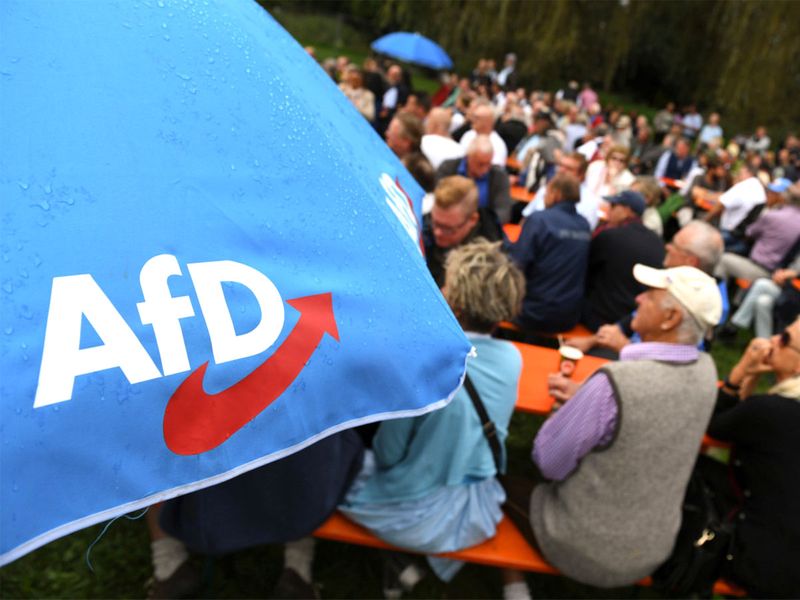
This surge is especially notable in the eastern states like Brandenburg, Saxony, and Thuringia, where it leads in polls. In the recent European elections, the AfD performed strongly, reflecting growing dissatisfaction with the current government. This has spurred discussions about the potential for snap elections, although none have been scheduled yet.
Austria
Freedom Party of Austria (Freiheitliche Partei Österreichs, FPÖ):
The FPÖ is a significant political force in Austria. The party pushes for lower taxes, pension reforms, and increased support for families. The FPÖ has been vocal about its Eurosceptic positions, too, advocating for reforms within the EU to return more powers to member states.
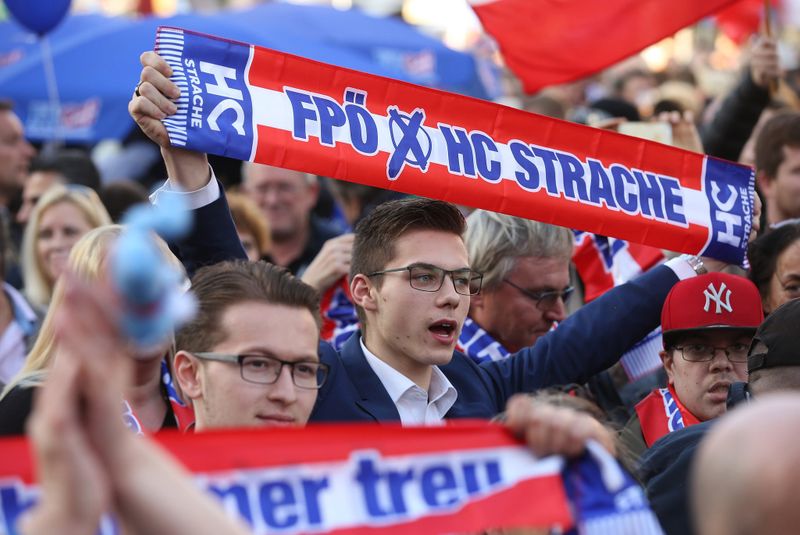
In the 2017 General Election, the FPÖ won 26 per cent of the vote. This success led to a coalition government with the Austrian People's Party (ÖVP), with FPÖ leader Heinz-Christian Strache serving as Vice-Chancellor.
During its time in government (2017-2019), the FPÖ pushed for stricter immigration policies and measures to enhance national security, aligning with its hardline stance on these issues.
Despite the 2019 Ibiza scandal, which led to the collapse of the coalition government, the FPO has managed to recover, maintaining a stable voter base and continuing to be a significant force in Austrian politics.
The Netherlands
Party for Freedom (Partij voor de Vrijheid, PVV):
Led by Geert Wilders, the PVV is known for its strong stance on immigration and Euroscepticism.
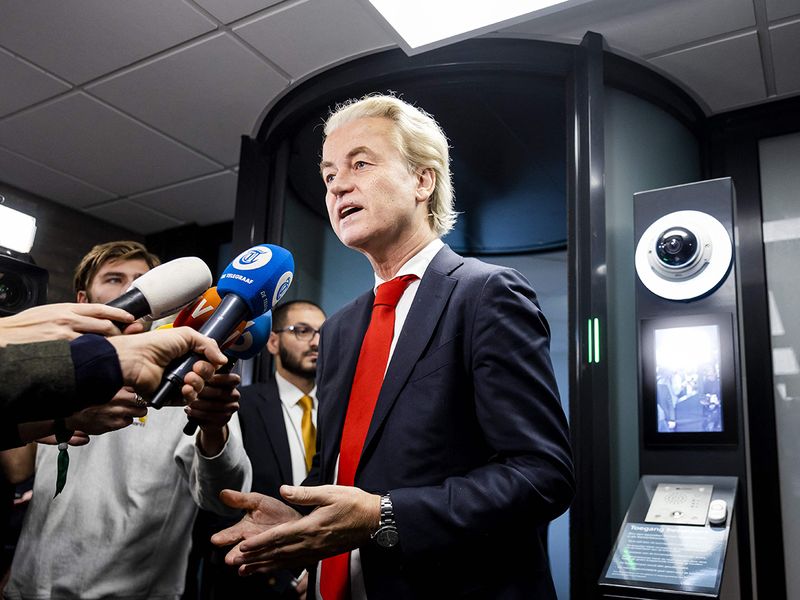
Switzerland
Swiss People's Party (Schweizerische Volkspartei, SVP):
The SVP is the largest party in the Swiss Federal Assembly and is known for its conservative and anti-immigration policies.
Hungary
Fidesz – Hungarian Civic Alliance:
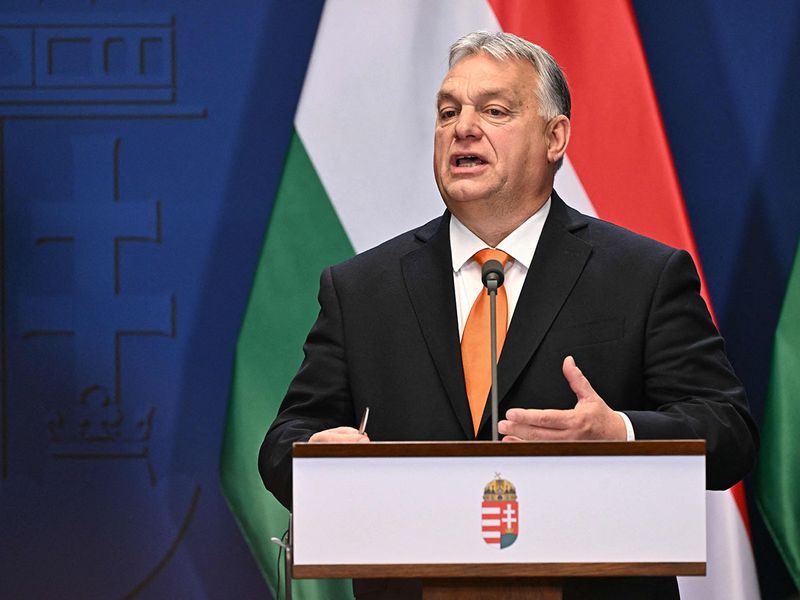
Led by Prime Minister Viktor Orbán, Fidesz has dominated Hungarian politics for over a decade, known for its nationalist and conservative policies.
Jobbik:
Initially known for its far-right stance, Jobbik has moderated its position in recent years but remains a significant political player.
Poland
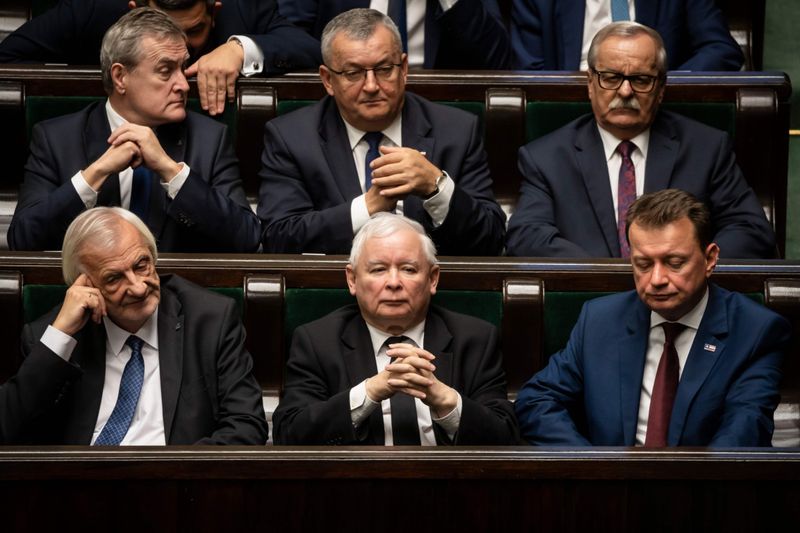
Law and Justice (Prawo i Sprawiedliwość, PiS):
The ruling party in Poland, PiS is known for its conservative, nationalist, and Eurosceptic positions. Jaroslaw Kaczynski is the co-founder and long-time leader of PiS.
Known for his conservative views and strong influence over Polish politics, Kaczynski has been instrumental in shaping the party's policies on judicial reforms, media control, and immigration. Although he does not hold a government office currently, his influence remains significant within the party and the government.
Slovakia
People's Party Our Slovakia (Ľudová strana Naše Slovensko, LSNS):
Known for its far-right positions, LSNS has gained seats in the Slovak National Council. Marian Kotleba leads LSNS, a dominant faction party known as Kotlebists – People's Party Our Slovakia (Kotlebovci – Ľudová strana Naše Slovensko, LSNS).
Kotleba has been a controversial figure in Slovak politics due to his extremist views and far-right ideology. He has a history of promoting nationalist, xenophobic, and anti-Roma rhetoric.
LSNS, has been known for its anti-immigrant, anti-EU, and nationalist positions. Kotleba has faced several legal challenges, including charges related to the promotion of extremism. In 2020, he was sentenced to prison for displaying symbols associated with the wartime Slovak fascist state, although he has appealed the verdict.
Bulgaria
IMRO – Bulgarian National Movement (VMRO – Bălgarsko Natsionalno Dvizhenie):
A nationalist party that has been part of coalition governments in Bulgaria, VMRO promotes Bulgarian cultural identity and sovereignty. The head of this party is Krasimir Karakachanov, known for its nationalist, conservative, and anti-immigrant positions.
VMRO had previously been part of the government coalition with GERB, holding significant influence, particularly with Krasimir Karakachanov serving as Deputy Prime Minister and Minister of Defence from 2017 to 2021.
Sweden
Sweden Democrats (Sverigedemokraterna, SD):
The SD has become a significant force in Swedish politics, advocating for strict immigration policies and nationalism. In
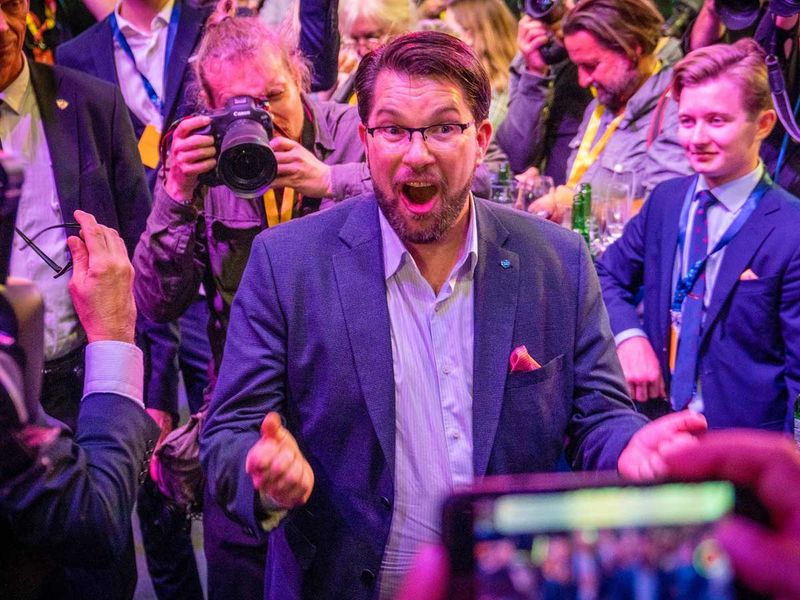
In the 2022 Swedish general elections, the SD under the leadership of Jimmie Akesson made significant gains. They secured 20.5 per cent of the vote, making them the second-largest party in the Swedish Parliament (Riksdag). This marked an increase from the 17.5 per cent they achieved in the 2018 elections.
The strong 2022 performance has increased their influence in Swedish politics. Although they are not part of the government, their support is crucial for the center-right coalition to pass legislation, giving them substantial leverage.
Finland
Finns Party (Perussuomalaiset):
Known for its nationalist and anti-immigration stance, the Finns Party has been part of the government coalition in Finland.
Spain
Vox:
A relatively new party, Vox has gained rapid support with its strong stance on national unity, immigration, and opposition to separatist movements.






